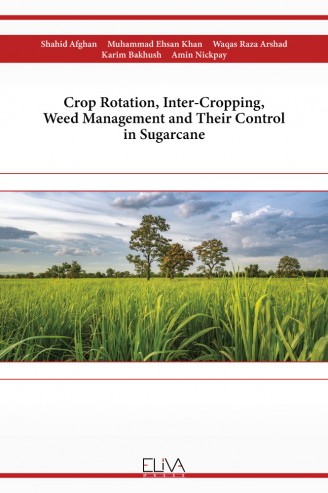
Crop Rotation, Inter-Cropping, Weed Management and Their Control in Sugarcane
$ 42.5
Description
Crop rotation and intercropping are sustainable agriculture practices aimed at achieving high economic output cost with minimum possible cost. There are some countires in Asia like Pakistan, India, Bangladesh and vietnam which have multiple cropping system where sugarcane follows some other crop in rotation as well as intercrop during a crop cycle. This impoves the physical and chemical properties of soil, increase land use efficiency, crop productivity and long term profitability. The autumn planted cane gives 20-30 percent higher yields over spring planting. Autumn cane cultivation, due to longer growing season, has special advantage of increased sugar recovery over spring cane. Thus, 30 percent increase in cane yield with about 10 percent increase in sugar recovery would give added advantage of much higher increase in sugar yield per hectare. The adoption of autumn planting is optional to different climatic regions and growers own socio-economic conditions. Growers have their own parameters of economics and customs reflecting preference for certain crop management practices.
Weeds are unwanted plants growing among crops plants. 30,000 species of weeds listed in the world and 18,000 species of weeds causes losses to Agriculture production. In Pakistan, Bermuda grass was the most noxious perennial weed among all other weeds because it regrow and spread very quickly and badly effect yield of the crop.
